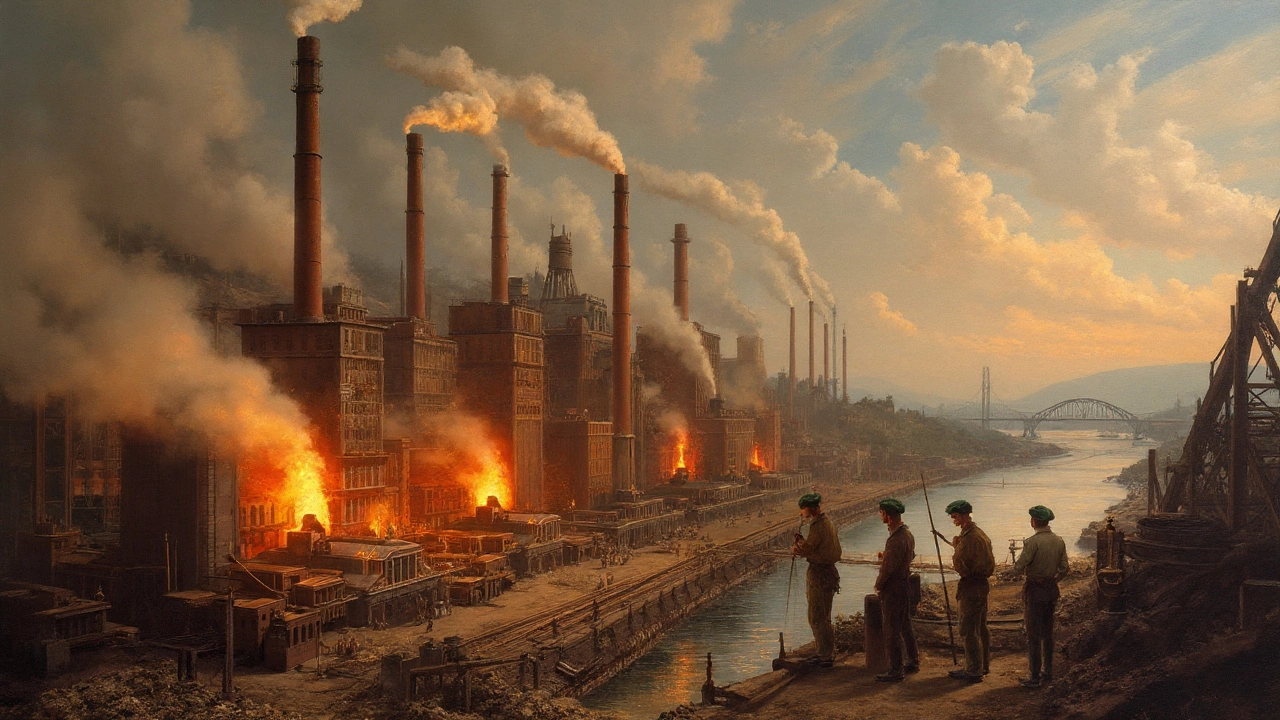Pittsburgh Manufacturing Insights – Trends, Jobs & Industry Highlights
When you think of Pittsburgh, the first image that pops up is often the iconic steel skyline. Yet the city’s industrial story has turned a big corner. Today, Pittsburgh blends its historic steel roots with fast‑growing tech, chemical, and advanced‑manufacturing sectors. If you’re curious about why this market matters for investors, job‑seekers, or anyone interested in U.S. manufacturing, you’re in the right spot.
Why Pittsburgh Matters in Modern Manufacturing
Pittsburgh’s transformation isn’t a fad; it’s backed by data. Over the past decade the region added thousands of high‑skill jobs in robotics, medical device production, and specialty chemicals. The city’s universities pump out engineers who stay local, feeding a talent pipeline that many Mid‑West hubs lack. At the same time, the government’s tax incentives and low‑cost real estate make it cheaper to set up a plant than in coastal metros.
What’s more, Pittsburgh still holds a piece of the steel puzzle. Even as U.S. steel output fell, niche producers here focus on ultra‑high‑strength alloys for aerospace and defense. Those specialized products command premium prices and keep the old‑school factories relevant.
Key Sectors Driving Growth in Pittsburgh
Advanced Materials & Steel. Companies are moving from bulk, low‑margin steel to high‑performance alloys. This shift mirrors the national trend where chemical manufacturing outscores traditional steel in value added, a point highlighted by recent industry reports.
Medical Devices & Biotech. The city’s hospitals and research centers create a hotbed for precision manufacturing. Think of devices that need clean‑room assembly – a perfect fit for Pittsburgh’s skilled workforce.
Software‑Integrated Manufacturing. Automation startups are pairing AI with legacy equipment, boosting efficiency without huge capital outlays. This mirrors the broader U.S. move toward “smart factories,” a theme you’ll find in articles about the fastest growing manufacturing states.
Chemical Production. While the biggest chemical subsector in the U.S. is chemicals overall, Pittsburgh’s niche firms specialize in specialty polymers and additives that feed into automotive and electronics manufacturing. Their growth supports the nation’s top‑exporting chemical industries.
All these pieces fit together to make Pittsburgh a micro‑cosm of the larger U.S. manufacturing renaissance. If you’re wondering whether the city can sustain this momentum, look at the numbers: employment in advanced manufacturing rose by double‑digits between 2020 and 2025, and investment in R&D hit record highs.
Bottom line: Pittsburgh isn’t just a relic of the steel age. It’s a vibrant, diversified hub where old‑school production meets cutting‑edge tech. Whether you’re hunting a new job, scouting a location for a plant, or simply curious about where America’s manufacturing future is heading, Pittsburgh deserves a front‑row seat.
